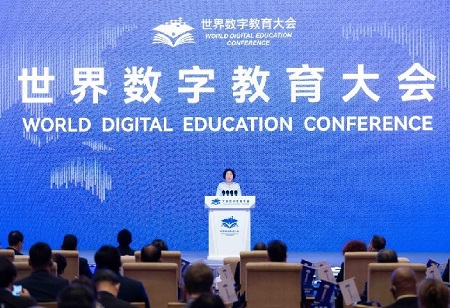The 2024 World Digital Education Conference in Shanghai marked several accomplishments, including the unveiling of the global version of China's Smart Education online platform. This initiative, announced by China's Ministry of Education, is designed to offer personalized digital education services to learners worldwide. The international edition, available in six languages, including Chinese, English, and French, features up-to-date information on global collaboration in the field of digital education.
The platform has uploaded the initial set of 780 courses covering 17 majors, and it anticipates that links to digital museum resources, including the Palace Museum, will offer global users insights into Chinese culture. Additionally, the platform offers services that cater to both domestic and international students, providing guidance on activities like visa applications and Chinese language exams. Furthermore, China's National Academy of Educational Sciences unveiled the Global Digital Education Development Index, which evaluates the overall status of digital education across countries. Over the last three years, China has made significant progress, moving up from the 24th to the 9th position in the rankings. This improvement underscores advancements in developing digital resources, enhancing the digital skills of educators and students, and establishing robust digital education systems, as highlighted by the academy.
At the conference, China introduced a new seasonal English Journal, "Frontiers of Digital Education," with the goal of revealing the policy direction in digital education and addressing critical issues such as the integration of Artificial Intelligence in educational settings. Additionally, Xie Dong, Shanghai's vice-mayor, announced the Shanghai Initiative on Digital Education Cooperation during the conference's closing ceremony to summarize the conference's outcomes. Andjela Jaksic-Stojanovic, the Minister of Education, Science, and Innovation from Montenegro, emphasized the challenges posed by the digital revolution in education at various levels and stressed the need for global collaboration to advance the digitization of education. Moreover, a program on educational cooperation for the period 2024 to 2027 and an agreement on the mutual recognition of higher education certificates and degrees were signed between Montenegro's Ministry of Education, Science, and Innovation and China's Ministry of Education during the conference, as reported by Jaksic.

